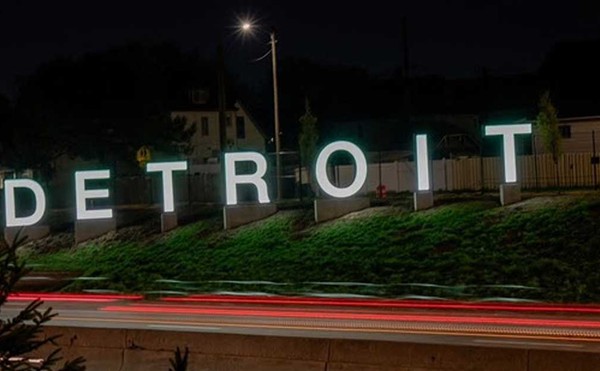Gov. Gretchen Whitmer is ordering Michigan residents to stay in their homes as much as possible after the number of positive cases of the coronavirus soared to more than 1,200 with no sign of letting up.
The stay-at-home order, announced at a Monday press conference, is similar to those already in place in California, Connecticut, Illinois, New Jersey, and New York.
The executive order calls for all non-essential businesses to close, but allows essential businesses — such as grocery stores, pharmacies, carry-out restaurants, gas stations, utility companies, and medical centers — to stay open. Residents are still permitted to go outside to exercise or walk their dogs.
The order will go in effect at midnight on Tuesday and will last for at least three weeks. Violators could be punished with a $500 fine and 90 days in jail.
Without stricter orders, Whitmer warned that 70% of Michigan residents could become infected with the coronavirus.
The death toll nearly doubled since Sunday, reaching 15.
“In just 13 days, we’ve gone from 0 to over 1,000 COVID-19 cases,” Whitmer said during the press conference. “This is an unprecedented crisis that requires all of us working together to protect our families and our communities. The most effective way we can slow down the virus is to stay home. I know this will be hard, but it will be temporary. If we all come together, get serious, and do our part by staying home, we can stay safe and save lives.”
With a test kit shortage, Whitmer said it’s impossible to know how widespread the infections are because most sick people aren’t getting tested.
"The problem that we have right now is that we don't have enough test kits," Whitmer said Sunday on ABC's This Week. "In order to make decisions, we really need more data."
What’s certain is that health workers are running out of supplies, including protective gear like face masks, gowns, gloves, foot covers, anti-microbial wipes, hand sanitizer, and nasal testing swabs. Whitmer also warned that Michigan is at risk of running out of ventilators because of the high demand. Roughly 5% to 10% of coronavirus patients typically need ventilators to keep their heart and lungs functioning.
"We are getting very, very sick people, and our intensive care units are getting filled up," Dr. Joneigh Khaldun, chief medical executive and chief deputy for health in Michigan, said at the press conference.
Stay-at-home orders are intended to slow the spread of the disease — or "flatten the curve" — so hospitals don’t run out of supplies. On Saturday, Whitmer ordered barbershops, tattoo parlors, and hair and nail salons to close.
But on Friday, Whitmer dismissed rumors that she was planning to order a lockdown on all nonessential activity, saying "We're not there yet."
"I am not calling for martial law,” Whitmer said. “That is rumor, and that is false. And it is dangerous for people to foment fear and put [out] bad information.”
And on Sunday, Whitmer defended her decision to continue allowing non-essential travel.
"Trust me, we are continuing to determine what we need to do to keep people safe, and to keep our health systems from being overwhelmed," Whitmer told Fox News.
Over the weekend, #ShutDownMichigan was trending on Twitter as residents urged the governor to close non-essential businesses.
Late Sunday night, President Trump, who has downplayed the significance of the coronavirus and even called it a "hoax" at one point, appeared to question the drastic steps taken to combat the contagion.
"WE CANNOT LET THE CURE BE WORSE THAN THE PROBLEM ITSELF," Trump tweeted. "AT THE END OF THE 15 DAY PERIOD, WE WILL MAKE A DECISION AS TO WHICH WAY WE WANT TO GO!"
Stay on top of Detroit news and views. Sign up for our weekly issue newsletter delivered each Wednesday.







